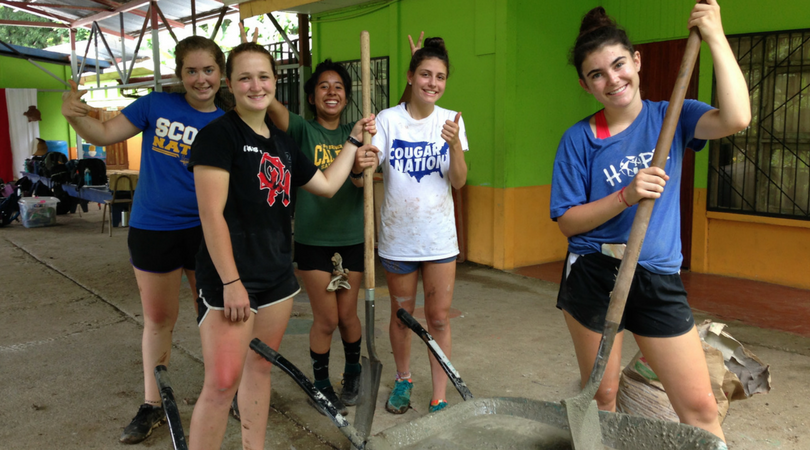
One of the main criticisms we receive as operators in the international service-learning space is that our students should be volunteering at home, not "halfway around the world." We value every opinion and absolutely agree that our home communities have areas of need that could use local engagement and volunteer power. We also understand the potential negative implications of traveling to another country—socially, culturally, environmentally.
These are themes that we aren't afraid to educate our students on in evening mentor sessions on program, even if it means putting them in the uncomfortable situation of questioning their own motivations for coming on the trip in the first place. Because ultimately, students leave our programs able to grasp the difference between volunteer abroad experiences that aren't sustainable, and those that are (community-led projects, respectful of the local needs and vision, builds public ownership, has an exit strategy, supported by educational context). They also walk away with new motivation and knowledge to seek out causes at home where they can commit their time and act on their passion.
What do our students think?
You don't have to take it from us—our students do the best job at speaking about their own transformational experiences. We asked them to help us reply.
We emailed our alumni: "Every now and then GLA gets comments on social media criticizing us for offering volunteer programs abroad and not helping 'at home.' We obviously have a lot of thoughts on this as we feel that service anywhere and everywhere is worthwhile and our programs inspire students to take action at home after their GLA programs. We're interested to hear your thoughts on this type of criticism. Has your GLA experience inspired you to make changes at home? If so, in what way? Do you think service abroad is more or less important that service at home?"
Here are some of their answers.
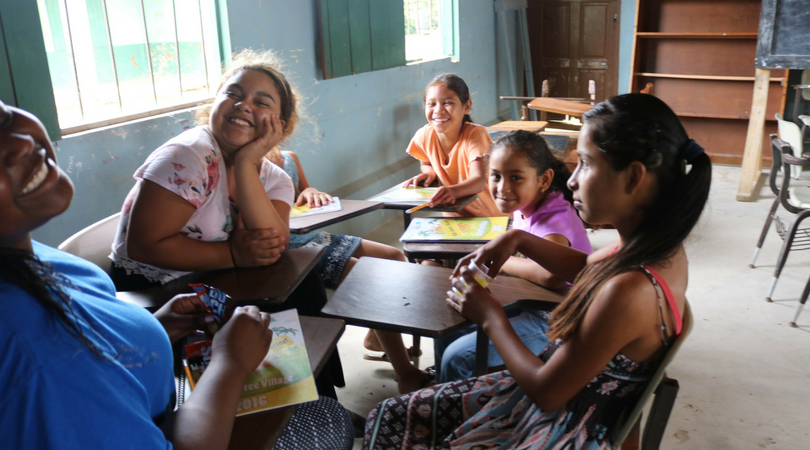
"This is a misguided criticism that I have been really affected by, as I have some family members who feel very passionately about this and don’t believe I should be doing service-learning programs abroad. I understand; however, a lot of students who participate in GLA are already involved in service at home, and if they aren’t already, they often are inspired to do so after their program. It is frustrating to me that people speak as if we have to ration service hours, like everyone is only allowed so many and we have to use them carefully; when it comes to domestic and international volunteering there is no reason to choose just one or the other."
—Jessie
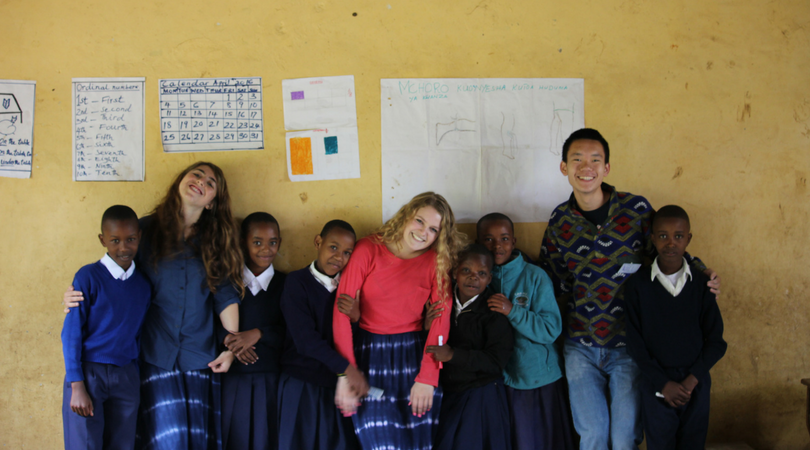
"Coming back from Tanzania, I saw my home community differently: Kids growing up in rich, in security-protected neighborhoods with shopping centers, with little self-awareness and understanding of the big picture. Service abroad is important because it's an opportunity to share in the lives of people a world away and gain a completely expanded perspective. Volunteering abroad can do more than relieve teachers in overcrowded classrooms or lend manpower to animal conservation initiatives; it can break stereotypes and continue to affect college major and career decisions.
"There are different programs in my own neighborhood for community service, but these programs tackle issues wholly separate from what GLA specializes in, and neither is more important than the other. We choose one cause over others because we are more drawn to certain themes or causes, and that's okay. A universal lesson that can be applied at home and abroad is that often, when volunteering, we wrongly assume that we already know what needs fixing. GLA has shown me how to be better about this when I'm doing community service at home.
"Civic engagement in the United States is becoming a trend: Pro-LGBTQ, "Help the homeless" signs, various types of activism. But when it comes to someone investing their time and heart into these matters, it usually isn't done. People in America will “support” causes with words, but when real need shows up in their lives and backyards, they won't show up with their time, action or energy. GLA taught me that there are vulnerable situations that can be scary to improve, but we can’t be afraid to show up if we want them to end."
—Bell
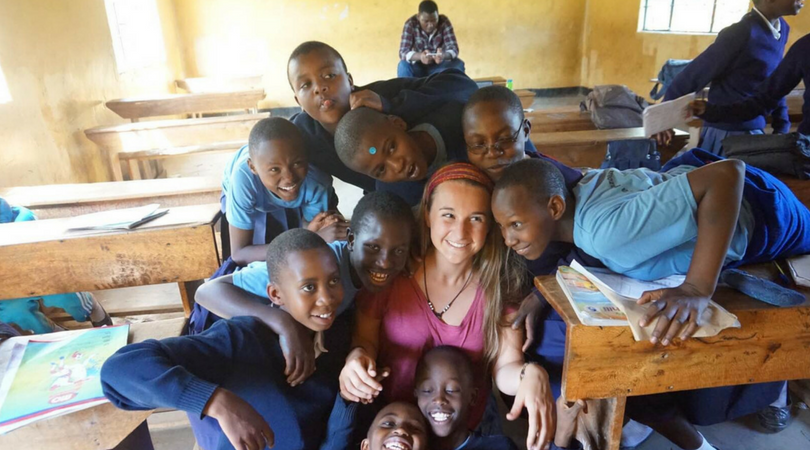
"In my personal experience, I started out volunteering at home and then ventured out to volunteer abroad. Since I have come home, I've continued to volunteer for the same organizations and make plans to volunteer abroad as well, for many years to come. Volunteering abroad did not deter my desire to continue to volunteer at home; instead, it fueled my drive. When I volunteer in elementary schools at home I think about the kids I met in Tanzania, and it gives me appreciation for the privilege I have to continue helping out at home.
"When volunteering in the United States, I had never been exposed to doing manual labor. This is something that I learned only in Tanzania, and I saw how much people can benefit from volunteerings putting in hard, manual work to move supplies more quickly, help expand coverage, provide builders with support. Physical labor is needed for universal causes, from affordable housing to wildlife conservation to food security. This is something that I absolutely plan to implement into my volunteer life at home. If I hadn’t gotten the experience of watching the children and teachers in Tanzania show their gratitude for our hard work, I may have never known the true benefit of getting my hands a little dirty."
—Taylor
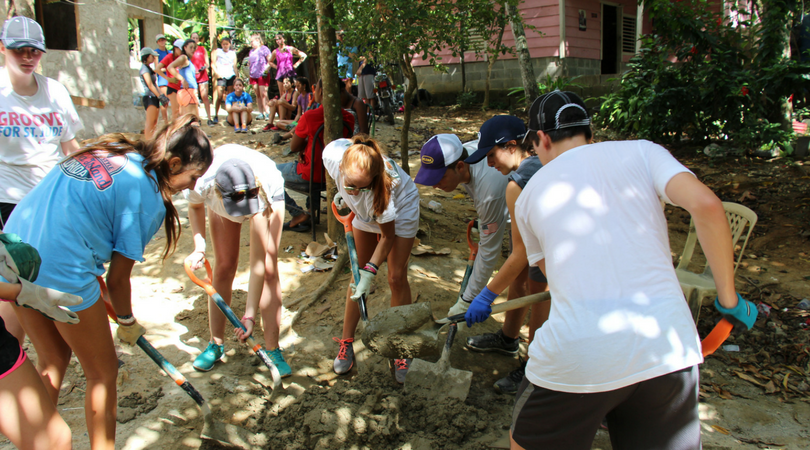
"My GLA program inspired me to make other changes beyond volunteering more at home. Just recently I arrived home from the Dominican Republic: Spring Break Service Adventure, where we learned about the slash-and-burn deforestation methods in the world that are destroying ecosystems like orangutan habitats to plant palm oil trees, to meet the demand of markets like the United States. This really upset me and showed me the reach that our own consumerism and buying choices can have. So upon my arrival home, I talked with my mom about my choice to cut palm oil out of my diet, which prompted her decision to stop purchasing products made with palm oil. This is just a first step, but individuals starting with small lifestyle changes can lead to a movement that will hopefully change communities."
—Madison
Read more about the topic
For those who continue to question the ethics of volunteering abroad versus volunteering at home, we encourage you to do extensive research on the operations of companies who offer service-learning before you select a program, and to read this essay by Katia Savchuk, published in "The Development Set" on Medium.com. Katia, a journalist, reflects on her time spent in El Salvador with Habitat for Humanity years ago. She similarly acknowledges that solutions like raising and sending money directly would, on paper, have less of a carbon or social footprint. However, she arrives at this conclusion:
"The memories of that week are part of the house’s story and part of my story. It’s not that it led to a light-bulb epiphany. But meeting the Ovandos and seeing the way they lived deepened my perspective as I went to India after college to work in slums, as I debated housing policy in grad school, and as I eventually became a journalist who often writes about vulnerable people. My classmates from the trip went on to medicine, law, academia and the foreign service, and I’m confident that week away from the classroom made them better professionals and humans."
"The key, I think, is not to go in expecting to be a savior in a hardhat, but rather to share in the lives of people a world away. That connection only deepens if you go in expecting to receive as much as you give."
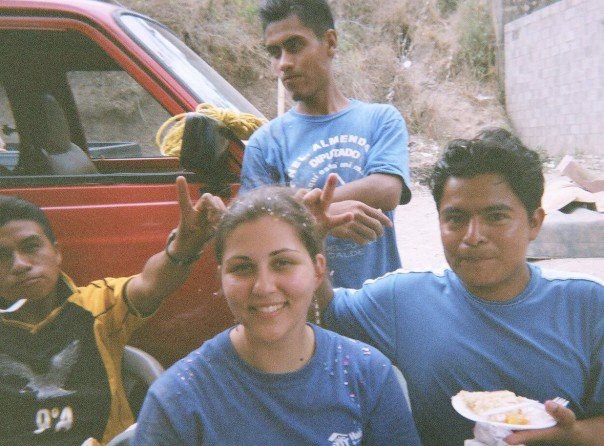
We love Katia Savchuk's article in the series "The Development Set, published on Medium.com. Read "I Traveled Abroad with Habitat for Humanity. Was I Doing Good or Just Having Fun?" here.
Have questions about our responsible travel philosophy, leadership curriculum or other heavy topics? Give our Enrollment Specialists a call or text at +1-858-771-0645, or email your question to info@experienceGLA.com. We'd love to have a conversation!

